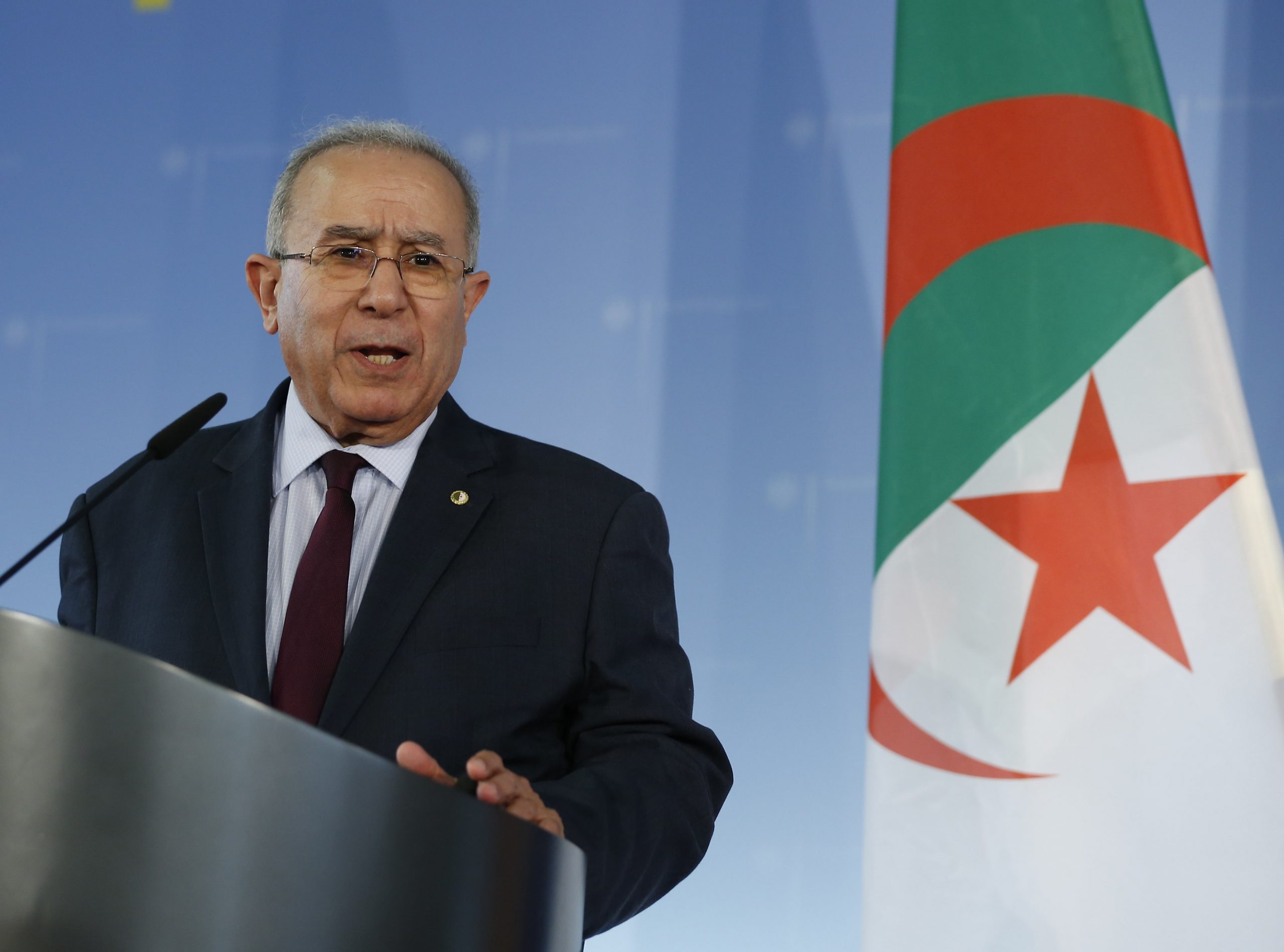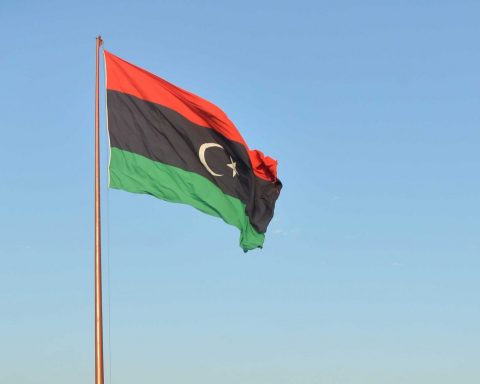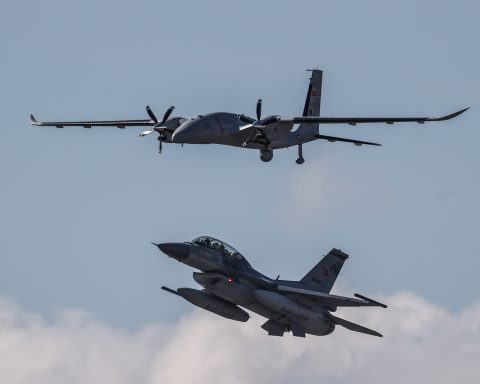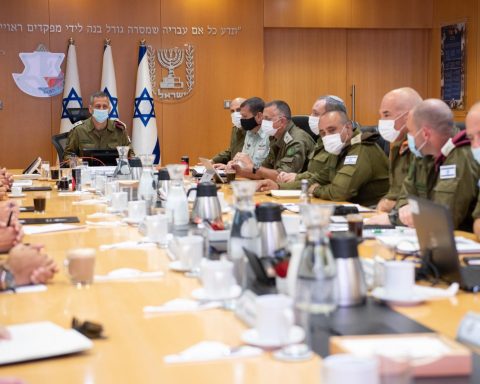Last June, Ramtane Lamamra became Algeria’s 21st foreign affairs minister. He has got a prominent role in President Abdelmadjid Tebboune’s new administration following the June 12 legislative elections. Since he took back this sovereign portfolio that he held before in ex-President Abdelaziz Bouteflika’s administration, Algeria’s diplomacy has been active and vocal.
Thus, Lamamra wants a new regional and sub-regional role. However, he is taking into consideration all the imperatives that this new role requires: solid states’ alliances and genuine regional powers’ normalization.
In light of the ongoing geopolitical parameters, Lamamra has established a paradigm, based on a preemptive and determined foreign policy — because Algeria’s foreign policy was terribly hit by the first and second waves of Arab uprisings. Consequently, the country’s regional and sub-regional role was downgraded to its symbolic legacy role of the 1960s and 1970s.
The political turmoil on Algeria’s long land borders, the country believes strongly, is a direct threat to its national security and political stability.
2019 Hirak dynamic
Since the election of President Abdelmadjid Tebboune in December 2019, Algeria has adjusted its Libya policy. It was President Abdelmadjid Tebboune’s foreign policy doctrine based on mediation and precaution. A mediation role that Lamamra was unjustly deprived of, a mission that would have been his dream job position as a diplomat. In the winter of 2020, UN Secretary-General Antonio Guterres proposed Ramtane Lamamra as his Libya Special Envoy, succeeding Ghassan Salame. The UN chief’s choice, however, was vetoed by the US.
Nonetheless, the Libyan crisis has been the central concern of the military, who did manage the Libyan dossier. Because of the country’s national security imperatives and political stability, the military found themselves in a power struggle within the intelligence service and the ex-president’s circle following the Ain Amenas gas facility terrorist attacks in Illizi province in the winter of 2013.
Algeria’s Libya policy rests upon laying strategic national security on its eastern and southern borders. As the political and security situation in Mali exists, it should be remembered that the military in the Defense Ministry headquarters in Ali Khoja’s West Hills, like the civilians in the Foreign Affairs Ministry in al-Madania’s East Hills, are still anxious about the kidnapping of the seven Algerian diplomats in the northeastern city of Gao in Mali by terrorist armed groups in the spring of 2012.
It is worth mentioning that the military is watching closely the country’s western borders with Mauritania and Morocco. On the Mauritanian border, Algiers and Nouakchott opened a new crossing point that will be secured and managed in a regulatory manner in order to ensure the transit of people and goods.
The military is in charge of the complex dossier of Western Sahara as they follow the presence of terrorist groups, human trafficking, and the migrant influx from the Sub-Saharan countries crossing to Europe.
A national security matter on this stance enhanced the military concerns in Algiers in the aftermath of the Guerguerat incidents in November 2020. Armed clashes between Moroccan royal forces and Polisario forces occurred on the border, ever since the relations between Algiers and Rabat have parted that led to last week Algiers’ final decision to cut off diplomatic relations with Rabat.
Regional and sub-regional balance
Nonetheless, according to the thorny Libyan dossier, Algiers’ action is based on regional and sub-regional security imperatives. The Algerian president, though, with his new foreign affairs minister, is pushing vehemently for a political solution in Libya, while all the indicators on the ground show that the military factors and motivations of the belligerents are still a long way to go.
Earlier, President Abdelmadjid Tebboune stated that Algiers is willing to mediate in the Libyan crisis in order to find a solution to the ongoing civil war that has been tearing the country apart, and Algerians will not let Libya turn into Somalia because Algeria does not want to see Libya turned into a failed state or a militia state. Yesterday, in his message to the Libya Neighboring Conference, held on August 30-31, 2021, President Tebboune thanked the participants, saying a stable Libya maintains the entire region’s stability.
Following the spark of the political crisis in 2014, that led to the armed struggle between a legitimate government recognized by the international community on the one hand, and a self-declared military chief backed by a fragmented parliament in the eastern coastal city of Tobruk on the other, Haftar is militarily supported by an odd axis of super and regional powers (Arab and European countries), the so-called Abu Dhabi-Moscow-Paris-Cairo axis.
The Algerian position has been clear from a national security and domestic stability standpoint.
This brings us to recent diplomatic moves by Algeria’s foreign minister, who made a two-day visit to Mali as a special envoy of President Abdelmadjid Tebboune. He met with official political and religious actors and leaders, focused on the implementation of the peace and reconciliation process, that resulted from the Algiers Peace Agreement in 2015. He encouraged Malian leaders to hold elections in order to end the transitional period put in place following last year’s military coup.
The trajectory and pathways of appeasement
Libya is considered to be an extension of Algeria’s strategic dimension on the East gate of the continent. Libya has always been a defensive line toward the other pivotal states in North Africa. An example would be Egypt, which is seen as another rival country in the sub-regional system. Yet, the latest developments in the region’s political alliances and axis maneuvers seem to have softened, in light of Gulf countries’ normalization progress. A policy is positively affecting the main MENA’s rising and pivotal states in their regional and sub-regional policies. The ongoing Egyptian and UAE normalization process with Turkey goes on that political trajectory and pathways of diplomatic appeasement, which would give a ray of hope for people in the region.
However, Algeria’s role at the regional and sub-regional level needs a full rapprochement with Egypt, where the latter is showing positive signs toward Algeria — a rapprochement that Algeria could capitalize on through its mediation proposal in the Grand Ethiopian Renaissance Dam (GERD) dispute.
Subsequently, Algerian Foreign Affairs Minister Ramtane Lamamra excelled in organizing a sub-regional conference on Libya’s neighboring countries in Algiers. As part of efforts aimed at helping Libyan leaders establish a roadmap and stay on the path of last fall’s ceasefire agreement, Algiers insists on the political process, pushing for general elections to be held at their initial date of December 24 and calling for regular armed foreign forces and mercenaries withdrawal from Libya. This complex matter, however, needs to be looked at by the 5+5 committee, Lamamra said in a joint press conference with his Libyan counterpart.
This meeting came after the one hosted by Algiers in January 2020. Algiers holds on to its foreign policy doctrine: the rejection of any foreign military role and presence in Libya. This explains Algeria’s position on rejecting the intervention of the North Atlantic Treaty Organization (NATO) against the Al-Qaddafi regime in the winter of 2011.
The fall of the al-Qaddafi regime pushed the military in Algiers to review the entire Sahel strategy. As a result, a new military doctrine has emerged in Article 31 of the Constitution. The rise of terrorist groups threat in the Sahel and the political instability in Tunisia, the blurry situation in Libya, and the permanent tensions with Morocco have extended Algerian military’s spending, and thousands of national guard soldiers have been permanently deployed and mobilized.
In sum, Algeria found itself cornered because of its “no-problem” foreign policy by all the international and regional actors involved in the Libyan conflict. Algeria’s new Libyan approach is a combination of its classic foreign policy doctrine and a new military doctrine. In other words, the military is approving regional and international actors to get involved, regardless of whatever way it goes with their national security and geo-economic interests. Meanwhile, Algiers is trying to set new regional and sub-regional foreign policy objectives, securing its land borders for national security and domestic stability reasons.














